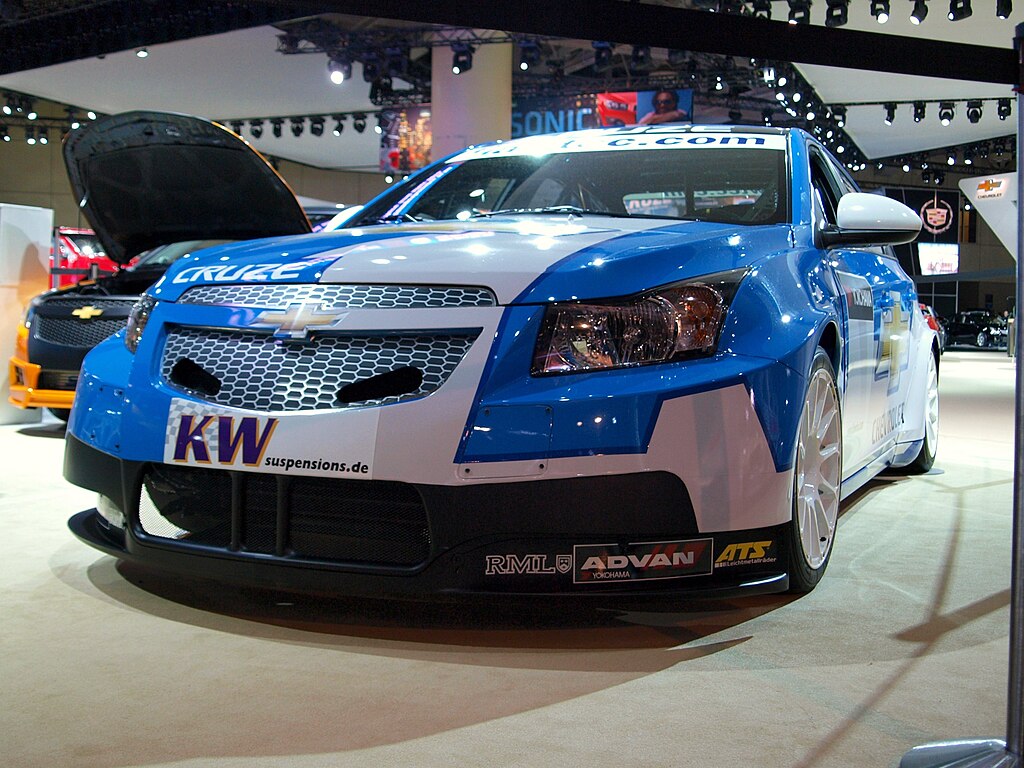Experiencing PCV valve problems in your Chevy Cruze is a challenge many owners have faced. Rough idling, excessive oil consumption, and power loss are frequent issues connected to the PCV valve.
These problems can worsen over time, but with the right approach and timely action, you can prevent expensive repairs and get your car back to optimal performance.
Here’s what you need to know to tackle these recurring issues and keep your Cruze running smoothly.

1. Rough Idling and Stalling
One of the most common problems reported by 2011-2016 Chevy Cruze owners is rough idling or sudden stalling. These symptoms often occur at low speeds or when the car is stopped.
The root cause is usually a failing PCV valve diaphragm built into the intake manifold. When the diaphragm ruptures, it creates air leaks, causing the engine to run erratically.
Oil contamination in the PCV system can also clog the valve, disrupting airflow and leading to unstable engine performance. Stalling at stoplights or during slow driving clearly indicates that the PCV system isn’t functioning appropriately.
Typically, the entire intake manifold needs to be replaced to resolve the issue, as the PCV valve is integrated within it.
However, some owners opt for aftermarket repair kits that target the faulty valve without requiring the replacement of the whole manifold.
2. Excessive Oil Consumption
Another significant concern for Chevy Cruze owners, especially with 2011-2015 models, is excessive oil consumption. When the PCV valve fails, it disrupts crankcase ventilation, causing an accumulation of blow-by gases. This leads to increased oil consumption as oil gets burned off more quickly in the combustion chamber.
Drivers often notice they need to top off their oil more frequently between changes. If the problem isn’t fixed, it can accelerate engine wear and, in severe cases, shorten its lifespan.
Regularly checking oil levels and replacing the PCV valve or intake manifold when needed can help control this issue. Ensuring proper crankcase ventilation is essential to prevent excessive oil use and engine damage.
3. Whistling Noise and Boost Pressure Loss
Many 2012-2016 Chevy Cruze owners have reported a whistling sound during acceleration, often accompanied by a noticeable loss of boost pressure.
This is typically due to a torn diaphragm in the PCV valve, which causes a boost leak. The leaking valve creates a whistling noise and reduces engine power.
This loss of boost pressure affects the car’s acceleration and overall performance. Left unchecked, it can decrease fuel efficiency and make the vehicle feel sluggish. In some cases, cracks in the intake manifold can exacerbate the issue, leading to further loss of power.
Fixing this problem usually requires replacing the intake manifold to restore boost pressure and eliminate the whistling noise.
4. Check Engine Light Triggers
A faulty PCV valve in the Chevy Cruze often triggers the check engine light, commonly displaying the P0171 code (System Too Lean). This code results from the vacuum leak caused by the damaged PCV valve diaphragm, which throws off the air-fuel mixture.
The P1101 code may also appear, indicating a problem with the Mass Air Flow (MAF) sensor, often linked to PCV valve malfunctions.
Running the engine too lean can lead to higher combustion temperatures, putting additional stress on engine components and potentially causing further damage.
Replacing the intake manifold or using an aftermarket kit to repair the PCV valve, followed by clearing the error codes with an OBD-II scanner, usually resolves the issue.
5. Oil Leaks and Gasket Failures
Increased crankcase pressure due to a malfunctioning PCV valve often leads to oil leaks around gaskets and seals.
Chevy Cruze models from 2011 to 2016 are especially prone to this issue. When pressure builds up, it forces oil past weak spots like the valve cover gasket, resulting in leaks.
If these oil leaks aren’t fixed, they can cause damage to surrounding engine components and pose a fire hazard. Replacing the valve cover gasket and fixing the PCV system can prevent future leaks and ensure proper engine ventilation.
In some cases, replacing the valve cover, which also houses the PCV valve, may be necessary to restore proper function.
6. Repeated PCV Valve Failures
Many Chevy Cruze owners have experienced multiple PCV valve failures, even after replacing the valve. This is especially common in 2011-2015 models. Owners report that after a repair, the PCV system fails again within a short period, leading to repeated repair costs.
This recurring issue is often due to poor-quality materials in the PCV valve’s construction, particularly the plastic diaphragm, which can degrade under high temperatures.
Since the PCV valve is built into the intake manifold, replacing the entire manifold is often required, adding to the cost.
Aftermarket solutions with more durable components are a popular choice for preventing future failures. Checking the vehicle’s warranty is also a good idea, as some repairs may be covered if the problem persists.
Conclusion
PCV valve problems in Chevy Cruze models, particularly from 2011 to 2016, have led to various engine issues, such as rough idling, excessive oil consumption, boost pressure loss, and oil leaks. Addressing these issues early with regular maintenance and quality repairs can prevent more severe damage.
Opting for durable aftermarket solutions and staying proactive about repairs will help improve the vehicle’s reliability and minimize the inconvenience of PCV valve failures.
Was This Article Helpful?

Rami Hasan is the founder of CherishYourCar.com, where he combines his web publishing experience with a passion for the automotive world. He’s committed to creating clear, practical guides that help drivers take better care of their vehicles and get more out of every mile.
